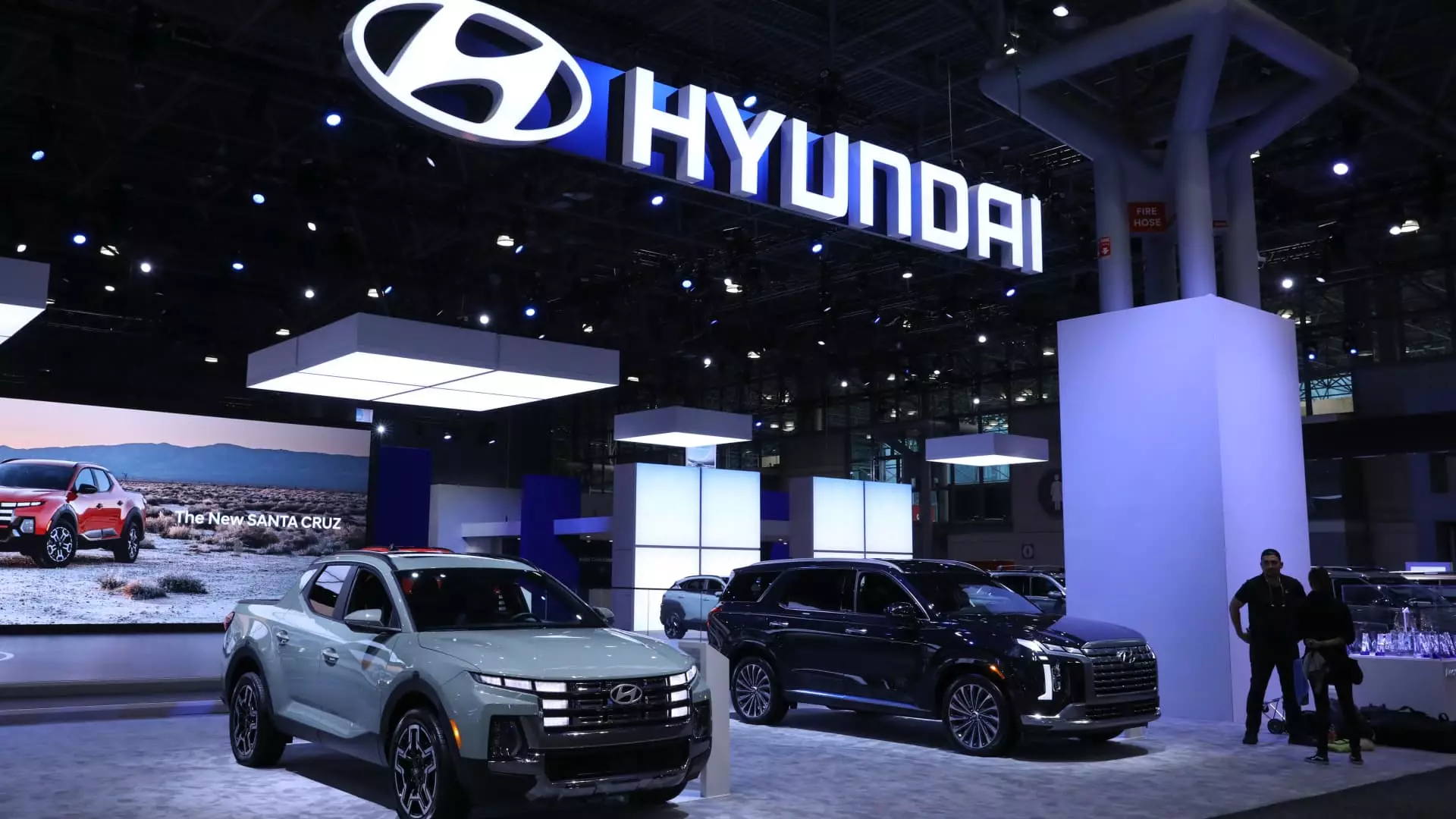Hyundai’s forthcoming $20 billion investment in the United States may very well symbolize a defining moment in American manufacturing history, especially given its staggering $5 billion dedicated to a new steel plant in Louisiana. This is not just another corporate maneuver; it’s a strategic masterstroke in a climate characterized by mounting tariffs and geopolitical uncertainty. As conglomerates scramble to safeguard their interests, Hyundai’s commitment illustrates a bold pivot toward localization. This investment is poised not only to bolster its manufacturing capabilities for electric vehicles (EVs) but also to combat the looming specter of tariffs that threaten to inflate production costs and disrupt supply chains.
This $20 billion decision comes at a time when President Donald Trump has intensified trade negotiations and scrutiny, particularly against nations like South Korea. With such investments, Hyundai is stepping up to the plate, countering these pressures while simultaneously enhancing its standing against domestic competitor Tesla. The irony here is palpable: Hyundai, a company that has faced its share of accusations regarding trade imbalances, is now putting its money where its mouth is by increasing its American footprint and creating jobs.
The Implications for Local Employment and Economic Growth
Hyundai’s announcement to employ approximately 1,500 people at the new steel plant is not just a statistic; it signifies a meaningful contribution to local economies. In Louisiana, where opportunities often lag behind, this investment is a beacon of hope. It promises job creation—and not just any jobs, but roles that are likely to lead to advancements in skills and careers. As we dissect the impact of such manufacturing plants, it becomes limitless; increased employment leads to greater consumer spending, higher tax revenues, and, consequently, a flourishing local economy.
The potential opening of a third automotive plant in Georgia reinforces the notion that Hyundai is not merely reacting to current circumstances, but rather strategically shaping the future of its operations in the U.S. The longstanding tension in U.S.-South Korea trade relations finds a new narrative: where many see a trade deficit, Hyundai sees an opportunity for partnership and local economic revitalization.
The Broader Picture: Localization vs. Globalization
Hyundai’s strategic localization effort places it in stark contrast to a worldview that often prioritizes globalization over local economies. In today’s volatile political climate, manufacturers must rethink their strategies; it’s not about simply expanding abroad but about embedding oneself within the local fabric. Hyundai’s decision to craft next-generation steel in Louisiana demonstrates an understanding that investing in American soil can lead to deeper ties with both customers and government.
Moreover, the inclusion of advanced manufacturing processes for electric vehicles mirrors the industry’s broader trends toward sustainability. While other firms may still hesitate, Hyundai is seizing the moment to redefine its manufacturing ethos. Their focus on producing top-tier materials domestically not only aligns with local job creation but also optimally caters to the growing demand for electric vehicles—setting a new standard for the industry.
Hyundai’s audacious $20 billion investment marks a pivotal shift, reflecting a broader trend where conglomerates must adapt to trade uncertainties with innovative strategies. This is the new blueprint for successful manufacturing in America, where investment meets strategic foresight.


Leave a Reply